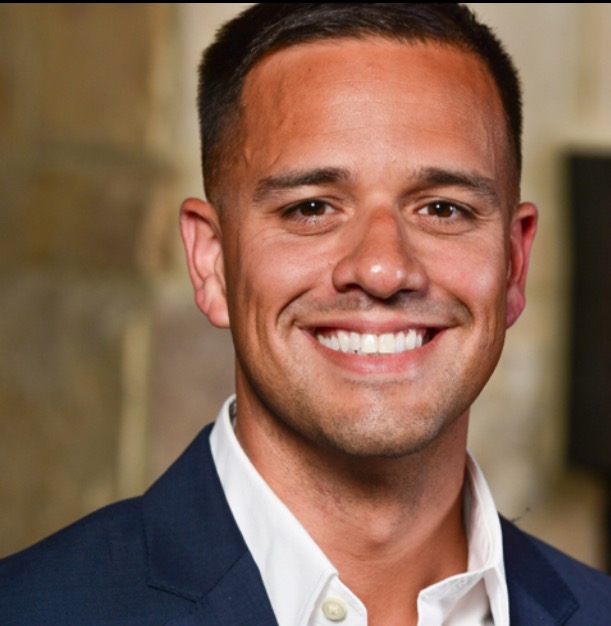Where we left on off in this series:
“September approached and something amazing had happened despite my poorly strategized departure from working full time. A CEO who I had talked to online in the previous year reached out to me. A couple of weeks later, we met at a bar in NY for 20 minutes and by the end, I was somehow presented with the following offer:
1. I was going to be mentored in videography and storytelling by the Vice President of the CEO’s digital team, who was a 28 year veteran of media production.
2. The team would document the CEO’s efforts to help a veteran, me, who chose life over money and was starting his career over.
3. I would be documenting my business lessons and spreading it to my “massive” LinkedIn veteran network of 700 people.
4. I was offered a salary!
IT WAS A DISASTER. I paid to go overseas and got fired before even starting the project. ” Catch this post in its entirety here.
Strike 1
Only a few hours into the trip I was feeling a strange vibe. I felt out of place shadowing because frankly I didn’t know what to ask. Additionally, the media guru seemed immersed in their own workflow. They offered some very random tips and tricks from time to time. It was clear they were a seasoned technician and a professional. It was also clear that they lacked both the social and communication skills required to be an effective mentor.
Strike 2
I observed how the CEO interacted with their team, how they spoke about their team in their absence, and how they loved to massage their already inflated ego. This was my mentor? I had been hoping for someone who thought this project was a wholeheartedly good endeavor, not a spur of the moment “this will make me and the company look good.” I didn’t need a show-off who wasn’t entirely sure if this was something the company or the team needed or wanted.
STRIKE 3
I made rookie mistakes during my one-on-one time with the VP in the city. The problem was that I don’t have much practice concealing my emotions. I’m certain I made an unfavorable impression displaying that I was bored to death. That will, however, go on to be one of my favorite mistakes.
After being in the country for 24 hours I started to receive feedback. Strangely, the feedback was not presented by the originator. The VP gave me feedback from the CEO. The CEO gave me feedback from the VP. None of it in real time. None of it in person. Collectively, it was disjointed, clumsy, and lacked something incredibly important: solutions.
I Know When I’m Wrong
Look, I am fully accountable for letting my initial observations result my subdued energy and marginal enthusiasm. Yes, of course, there are things I could’ve done better: have deeper discussions on expectations with the company, ask more questions, and make more of an effort to understand the people I was with.
But to be fair, I am rarely wrong when it comes to leadership and emotional intelligence. I spent two decades constantly learning from my successes and failures and obsessively honing these skills. I’ve held the belief that authenticity and empathy always trump technical skills. I knew I was with the wrong people.
It was clear that the VP had a longstanding credibility in the industry, but, based on my experience, lacked all the aspects to lead others. This was validated when the VP continually disclosed the discord of their team and how they seemed to never listen.

I diagnosed all of the issues within minutes and offered to be an intermediary so that the VP could focus on … VP things. Essentially though, I inadvertently put myself in the line of fire. While I had already gathered that this person was not a good fit for me as a teacher, I still always have the desire to serve and assist those who have personal or professional barriers to success. Upon reflection, I now understand that it was not my place to fix anything. It was simply my primal Marine instincts kicking in. I was problem solving, determining the most viable and actionable solutions, and taking action. Naturally, it was not received well.
The Report
The next day I was forwarded a document written by the VP to the CEO summarizing why I would be a detriment to the digital team. My eyes almost popped out of my head.

Here are the main highlights:
“Lack of focus. He presented himself as wanting to be a digital storyteller (documentarian) but multiple conversations point to portrait photography […] we do not need a full-time photographer on staff.”
“Lack of initiative […] he was pleasant personally but professionally showed little interest in observing or paying attention to what I was doing.[…]. Given the opportunity to spend one on one time with a 28 year media professional, I was surprised he wasn’t at my hip.“
“Lack of self-awareness in his role or position. Rich has been a leader and seemed to naturally assume he would have some sort of leadership role at the team immediately. During one conversation he offered to be the middle man between myself and the team […] to ensure processes and operations were being followed.“
“Because I operate at such a high level of efficiency and we are building out an “A Team” right now, I feel to introduce Rich to this team would be disruptive at best, damaging at worst.”
When I returned to the US, I was not deflated as much I was confused about what had just happened in the last 72 hours. I wrote the CEO my thoughts, concerns, and observations only to never hear back. I was ghosted from my position, my project, and my potential.
The Aftermath
The words within the report are the type to inflict serious blows to my confidence. They are verbal uppercuts. It is these moments that usually take the form of a massive flare up consisting of negative emotions and an almost vindictive agenda to prove everyone wrong. Not I. Not anymore.
I now treasure the Rich Cardova Report more than any diploma or certification I have. Why? Because the report is just a report. It is a letter of someone’s thoughts about me.
I KNOW who I am. I KNOW who I am not. More importantly, whatever insecurities and vulnerabilities I don’t want people to see are probably exactly what they see anyway. With that, it just seems like a waste of time to initiate the internal challenge of proving external forces wrong. It only serves to validate the control those forces may have had over us. It may even exacerbate it more so than before.
I don’t believe in positive affirmations. I don’t believe in telling myself that “I am somebody” or “I am a positive guy.” I reflect. I take action. I reinforce what I know to be true about myself. The point here is to move on. Move on and move up… and do it quickly. My life belongs to me and not the people who can’t spell your name right.
Whoa Whoa Here She Comes
That day in August when I met the CEO and “shook” on the project was the same day I met someone who had been informally and remotely mentoring me for a year. She was a high profile NYC woman who always said “Rich, you are more in the driver’s seat than you think.” This meeting proved to kick start the beginning of something very magical; something the CEO, the VP, or the project could never give me. I was in the driver’s seat after all and London was in the rear-view mirror and across the pond. I’d like you all to meet…


